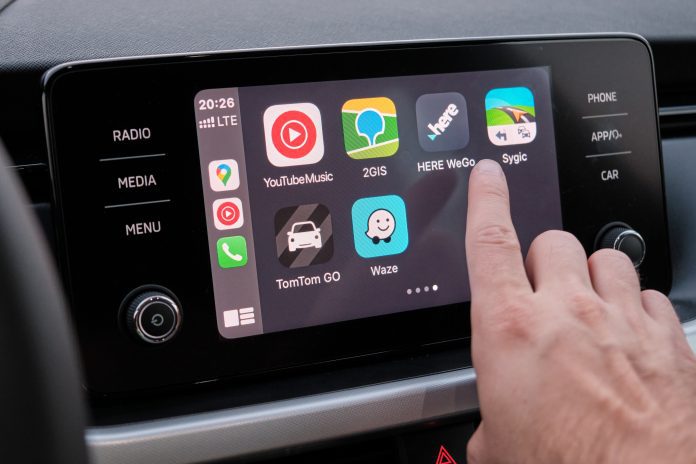The latest JD Power survey has once again underscored the ongoing dissatisfaction with OEM infotainment systems, with Apple CarPlay emerging as the preferred choice among consumers. Despite improvements in overall vehicle satisfaction for 2024, infotainment systems still need to improve for many OEMs.
Infotainment: A Persistent Challenge
While overall vehicle satisfaction improved 2 points from a year ago, infotainment systems must catch up. According to Automotive Performance, Execution and Layout (APEAL) Study:
“One area that continues to dampen excitement across all vehicle fuel types is infotainment—one of the ten factors on which the study is based. Despite satisfaction improving 5 points this year to 823, infotainment remains one of the lowest-scoring categories industry-wide. Satisfaction with in-vehicle infotainment systems averages 805, but it is higher among owners who use Android Auto (832) or Apple CarPlay (840). This suggests that customers prefer the straightforward usability of their phones extended into their vehicles rather than the often-clunky interfaces provided by manufacturers.”
CarPlay: A Preferred Choice Under Pressure
Apple CarPlay has consistently ranked high in customer satisfaction, yet its availability in new vehicles is decreasing. While some manufacturers like Porsche and Aston Martin are integrating the next-generation CarPlay with advanced features, others are either scaling back or resisting its adoption.
Here is a list of OEMs that still support CarPlay and Android Auto:
• Land Rover
• Mercedes-Benz
• Lincoln
• Audi
• Volvo
• Honda
• Nissan
• Ford
• Jaguar
• Acura
• Polestar
• Infiniti
• Renault
However, companies such as GM, Rivian, and Tesla have chosen to focus on their proprietary infotainment systems, potentially overlooking a growing consumer demand for CarPlay and Android Auto. A McKinsey study from September 2023 revealed that nearly half of new car buyers wouldn’t consider a vehicle without these popular infotainment systems. This trend highlights the importance of OEMs reconsidering their approach to infotainment technology.
How Dealers Can Address Consumer Concerns
As a dealer, you may encounter customers disappointed by the lack of CarPlay or Android Auto in specific models. Here’s how you can effectively address their concerns:
- Highlight Vehicle Features: Focus on the strengths of the vehicle’s available features and how they align with the customer’s needs. Emphasize unique aspects of the OEM’s infotainment system that may appeal to the customer.
- Educate on Alternatives: If a vehicle doesn’t support CarPlay or Android Auto, provide information on any available aftermarket solutions or upgrades that could enhance the customer’s experience.
- Listen to Feedback: Show empathy and acknowledge the customer’s preferences. Tell them their feedback is valuable, and you will share their concerns with the manufacturer. Then, follow up with them on your findings.
- Stay Informed: Keep up-to-date with changes and advancements in infotainment technology. This knowledge will help you provide informed recommendations and alternatives to your customers.
In summary, while CarPlay continues to be the preferred infotainment choice, dealers must work with the challenges of varying OEM offerings. By addressing customer concerns with empathy and knowledge, you can enhance their experience and foster greater satisfaction.



